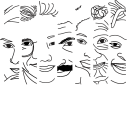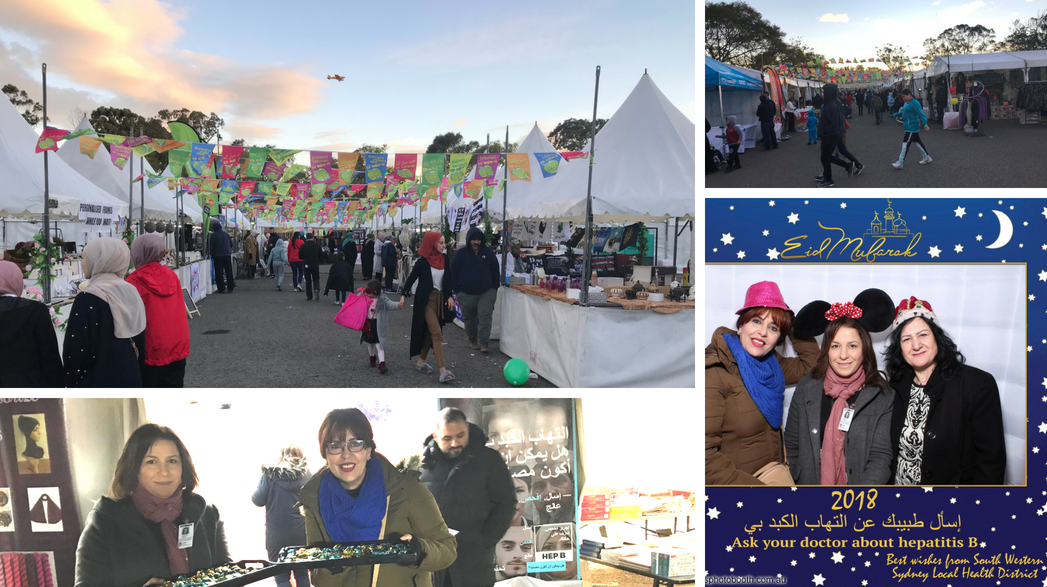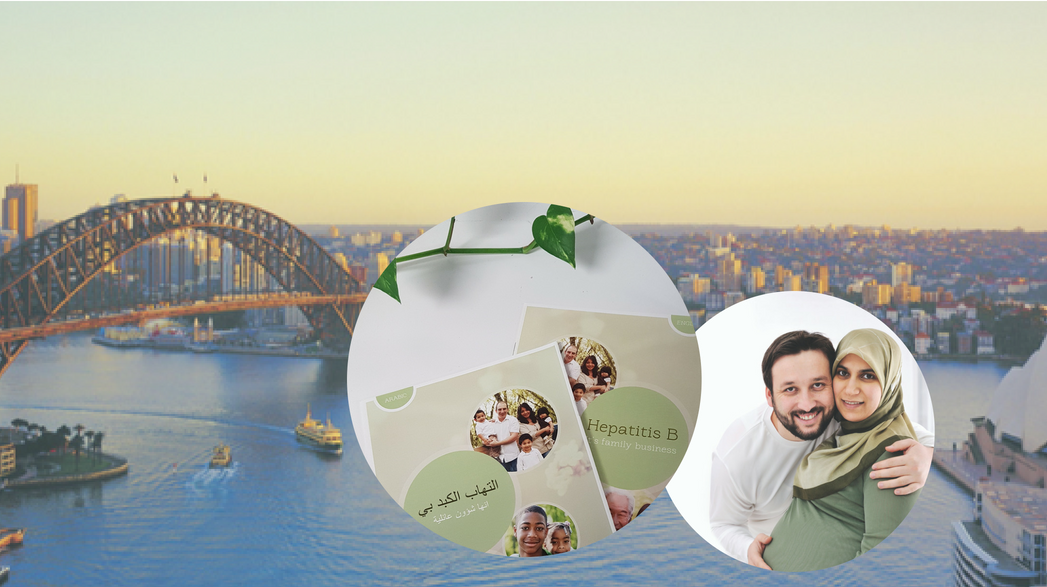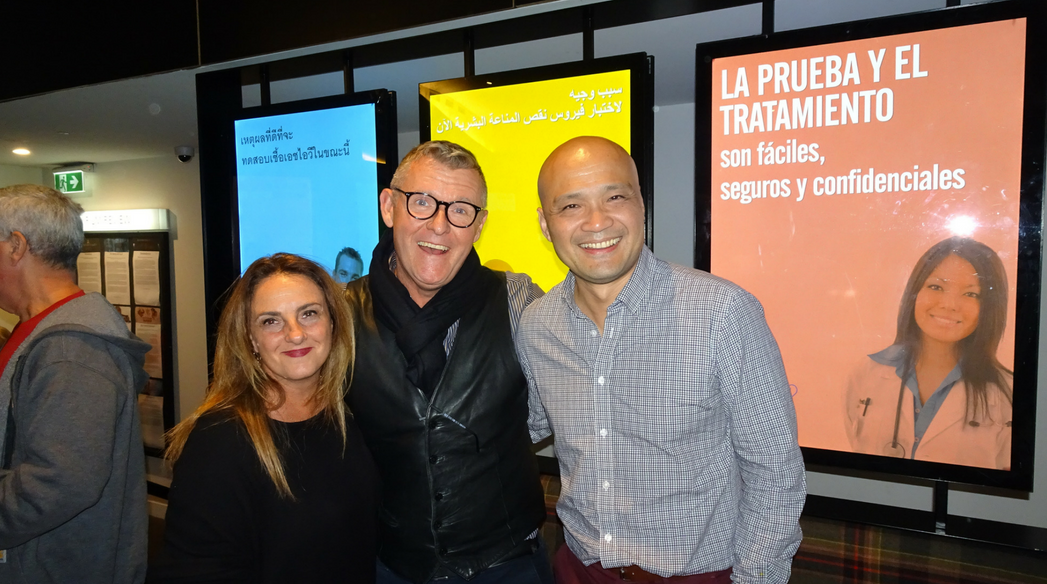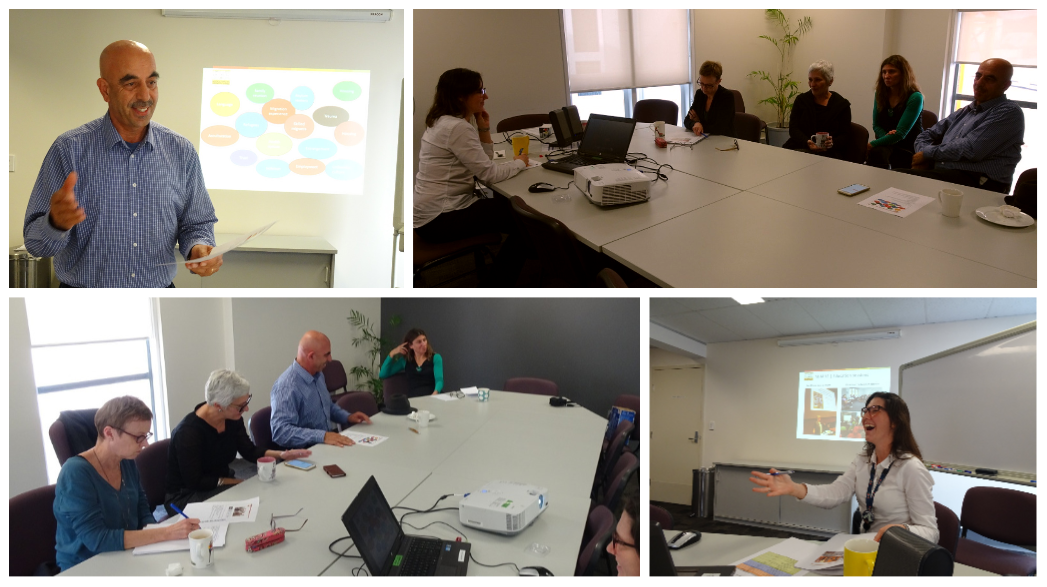The photo booth organised by the South Western Sydney Local Health District at Eid Show at Bankstown was a big hit!
The booth provided added fun for those visiting our hepatitis B information stall, according Faten Solaqa, project officer for the Arabic Community Hepatitis B Project.
“Not only did the booth give visitors to our stall visitors a fun photo experience, it meant they went home with a lasting memory of the big day plus a valuable health message about hepatitis B,” said Ms Solaqa.
Hundreds of hepatitis B resources were distributed at the event including Hepatitis B: It's a family business booklet produced by the MHAHS in English and Arabic.
Ms Solaqa revealed how she also hammed it up at the festival.
“I used a few props to take photos with my friends. One look at the photos and the event is as real as it was on the day. The photos are also social media friendly allowing me share them and spread the word about hepatitis B on email, facebook and instagram from my mobile,” said Ms Solaqa.
Please visit us at www.facebook.com/TheMHAHS.
The booth provided added fun for those visiting our hepatitis B information stall, according Faten Solaqa, project officer for the Arabic Community Hepatitis B Project.
“Not only did the booth give visitors to our stall visitors a fun photo experience, it meant they went home with a lasting memory of the big day plus a valuable health message about hepatitis B,” said Ms Solaqa.
Hundreds of hepatitis B resources were distributed at the event including Hepatitis B: It's a family business booklet produced by the MHAHS in English and Arabic.
Ms Solaqa revealed how she also hammed it up at the festival.
“I used a few props to take photos with my friends. One look at the photos and the event is as real as it was on the day. The photos are also social media friendly allowing me share them and spread the word about hepatitis B on email, facebook and instagram from my mobile,” said Ms Solaqa.
Please visit us at www.facebook.com/TheMHAHS.
